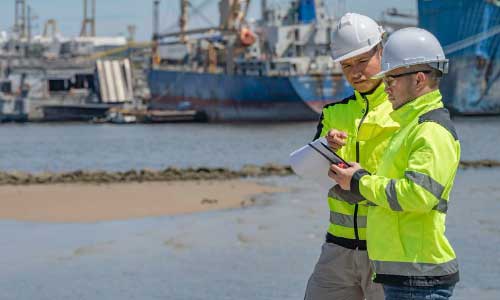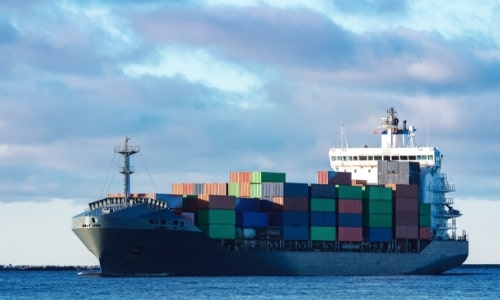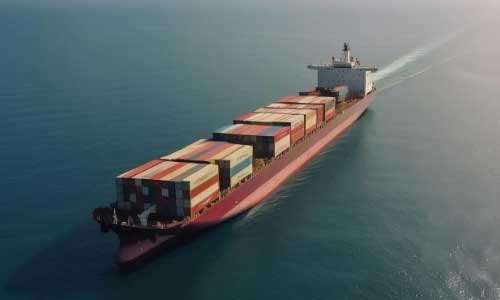AIS and Marine Insurance Cover
Marine insurance plays a vital role in protecting ships, cargo, and crew from unexpected financial losses. To assess such risks, prevent fraud, and ensure compliance with international marine time regulations, the Automatic Identification System (AIS) has become an important factor in marine ...read more

- Best Coverage for the Lowest Price
- Quick & Hassle-free Policy Issuance
- Dedicated Teams for express Claims
Safeguard Your Business from Sea’s Uncertainties - Act Now !
What is AIS?
The Automatic Identification System (AIS) is a tracking system that allows ships to communicate with each other and with shore stations. Initially developed for collision avoidance, it has now evolved to serve multiple functions.
With AIS, you can get real-time information about a vessel’s —
- Location (latitude and longitude)
- Speed and course
- Voyage details
- Cargo type
- Vessel identity
- Navigation status
AIS data is widely accessible to maritime authorities, insurers, and other stakeholders. It is an essential tool in marine risk assessment and regulatory compliance.
Why is AIS Important for Marine Insurance?
AIS plays a critical role in marine business insurance by providing insurers with real-time tracking and historical data about a vessel’s movements.
The key benefits of AIS for marine insurance include —
- Risk Assessment – Helps insurers evaluate the level of risk associated with a vessel’s operations, ensuring appropriate coverage
- Fraud Prevention – Identifies suspicious behaviours such as ship spoofing, unauthorised cargo transfers, or sudden disappearance of AIS signals
- Regulatory Compliance – Ensures vessels adhere to international regulations and sanctions to avoid legal consequences
- Claims Verification – Provides concrete data in case of accidents, cargo damage, or liability claims, making claim settlements more efficient
- Policy Pricing – Supports accurate underwriting by allowing insurers to tailor policies based on a vessel’s historical data and risk exposure
Is AIS Mandatory?Yes, as per the International Convention for the Safety of Life at Sea (SOLAS), AIS is required for —
AIS must remain operational at all times when a vessel is underway or at anchor. However, the ship’s master may switch off AIS if they believe continued transmission could compromise the safety or security of the vessel, its cargo, or crew. Such actions must be recorded in the ship’s logbook, along with a justification for disabling AIS and the duration of the outage. |
How Does AIS Impact Marine Shipping Insurance?
AIS data is used extensively by marine insurers to monitor vessel activity, evaluate risks, and enforce compliance.
Here is a breakdown of how AIS contributes to marine insurance processes —
|
Use Case |
Description |
|
Risk Assessment |
Helps insurers determine the likelihood of claims by analysing a vessel’s navigation patterns |
|
Fraud Detection |
Detects ship spoofing, AIS signal tampering, and unauthorised cargo transfers |
|
Sanctions Compliance |
Ensures vessels don’t enter restricted or sanctioned territories |
|
Claims Verification |
Provides real-time and historical AIS data to support or dispute insurance claims |
|
Improved Underwriting |
Supports accurate policy pricing and ensures the alignment of coverage with actual risks |
Consequences of Disabling AIS
If a ship intentionally disables AIS without a valid reason, it may face serious consequences, including —
- Loss of Insurance Coverage – Insurers may void coverage if AIS manipulation suggests fraudulent activity or a breach of regulations
- Violation of SOLAS Regulations – Non-compliance with AIS requirements can result in penalties, fines, and legal action from maritime authorities
- Increased Scrutiny – Insurers and authorities may investigate vessels that repeatedly disable AIS or operate in high-risk zones without justification
- Trade Restrictions – P&I (Protection & Indemnity) Clubs and other insurance providers may refuse to cover vessels that engage in AIS ‘cloaking’ practices linked to sanction violations or illegal trade
Conclusion
AIS is an essential tool in the marine industry, not only for enhancing safety but also for ensuring transparency in insurance policies. Shipowners who comply with AIS regulations can maintain valid insurance coverage, minimise risks, and enhance operational efficiency.
For expert guidance on marine insurance coverage, consult Policybazaar.ae and get the best protection for your shipping needs.
Frequently Asked Questions
Q1. What is covered under marine insurance?
Marine insurance covers losses related to cargo, hull damage, third-party liabilities, and crew protection.
Q2. What is the full form of AIS insurance?
AIS stands for Automatic Identification System. It is not a type of insurance but rather a tracking system used to enhance maritime safety and support marine insurance policies.
Q3. What is ITC B cover in marine insurance?
ITC (Institute Time Clauses) B cover provides partial financial protection against losses due to accidents, weather conditions, and fire. However, it does not cover total losses or specific risks like theft or piracy, which may require additional coverage.
Q4. Which losses are not covered by marine insurance?
Losses due to willful misconduct, war, piracy (in some cases), and regulatory violations may not be covered.
Get Other SME Insurance in UAE
More From Marine Insurance
- Recent Articles
- Popular Articles







.png)




